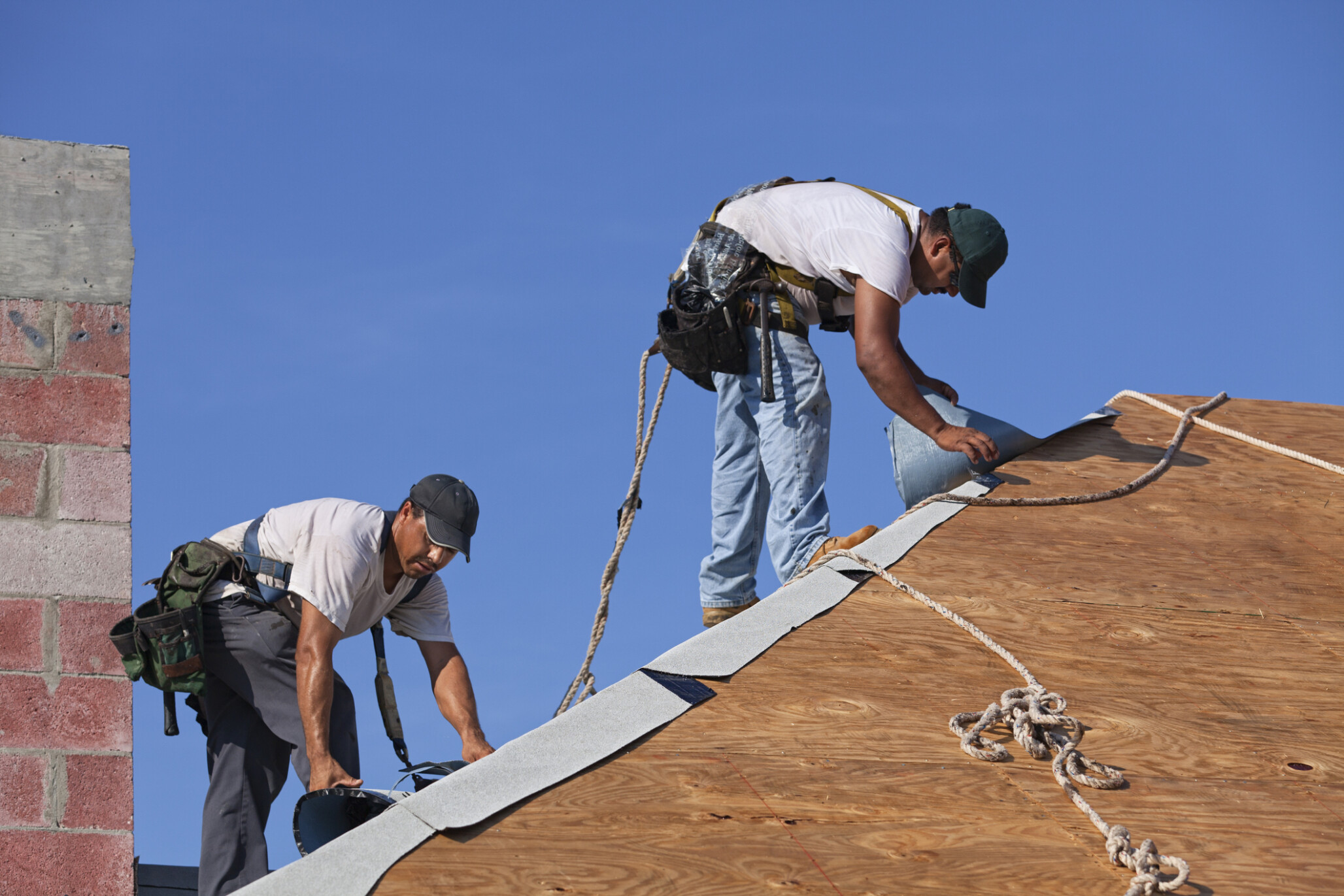
7 Safety Tips for Roofing Contractors
Roofing is riskier than you think. Roofing workers account for roughly 20% of deaths within the construction industry, which is the deadliest industry in the country. OSHA cited roofing companies for nearly $20 million in fines in 2020 alone.
If you want to avoid devastating accidents and costly fines, you need to follow a few safety tips for roofing contractors. Start with the essentials so you can develop a plan to protect your workers.
What tools do you need for roofing safety? What are the dangers of roofing besides falls from a roof? When should you get insurance?
Answer these questions and you and your roofing employees can stay safe for years to come. Here are seven essential safety tips.
1. Wear the Right Clothing
Your clothing should move with your body without making it harder to move. Make sure your shirt and pants are not too tight or too baggy. You should wear full sleeves, even during the summertime, as your clothes can protect you from scraping or cutting yourself.
Protect your hands by wearing a pair of leather gloves. Secure your gloves to your wrists with straps, and try tucking your sleeves into your gloves.
You should always wear closed-toed shoes. They can be of any material, as long as the soles grip the roofing materials you are using. Get boots if your shoes slide around too much.
You must wear a helmet as well. The helmet should fit over the top of your head, and you can secure it in place with a chin strap.
2. Use Ropes and Harnesses
Put on a safety harness before you go up a ladder or walk around a roof. The harness should fit around your torso, waist, and shoulders. Your arms and legs should be free to move around, but your harness should catch you if you slip off the roof.
Buy harnesses in bright colors like neon yellow or orange. Bright harnesses are easier to see against roofs than dark harnesses because many roofs have dark materials on them.
You can also use safety ropes to support your harness. When you fall, these ropes should lock into place so you don’t drop to the ground. Find ropes made with polyester and attach them to a locking snap hook.
3. Be Careful With Ladders
More than 22,700 workers were injured after falling off ladders in 2020. Be very careful when going up and down a ladder. Grip the rungs with your hands and put your stomach flat against the ladder so your center of balance is not skewed.
Do not go up a ladder that is wet or broken. If you need to clean or repair a ladder, lay it flat on the ground and clean it or make repairs.
The bottom of your ladder should be on a level and stable surface. You can lean the top of the ladder against the roof, but make sure the bottom is not sliding around. You can use sandbags to keep the bottom in place.
4. Be Cautious Around Hazardous Substances
Your roofing company may keep hazardous materials in your building. You also may encounter materials like asbestos, lead, and mold when you are repairing an old roof.
Wear a face mask with a respirator so you can breathe in clean air. Never touch a dangerous substance with your bare hands and use sealed storage containers to transport hazardous objects.
Clean the work space as you go along instead of leaving trash and substances on the ground. This will make the roofing service shorter and prevent accidents.
5. Avoid Bad Weather
Roofs are designed to deflect rain and snow away from a house. This means that they become very dangerous when you go on them during or after a storm. Never go on a roof while it is actively raining or just after it has rained.
Do not go on a roof when it is overcast and difficult to see, and never go on a roof at night. If you must go when it is difficult to see, wear headlamps so you can see directly in front of you. Move slowly and use ropes to avoid falling off the side.
6. Create Walkways
Many people with a roofing business focus on the hazards of going up on the roof. Though being on the roof can be dangerous, walking around a home can also be hazardous. You may trip over something and fall onto the ground.
If your client has walkways through their backyard or around their driveway, you should use them. But remove objects that your workers can trip over and make sure the materials are smooth. If your client does not have walkways, you can make your own by laying out sheets of plywood.
7. Buy Liability Insurance
One of the best ways to protect yourself from liability is to have comprehensive liability insurance coverage.
There are many types of coverage to consider, including professional liability, equipment coverage, failure to tarp or protect the property, hot tar and high-risk applications, and more.
Professional liability insurance protects your business from expensive settlements and lawsuits. If a judge requires you to pay money to a client, the insurance could pay for it on your behalf, up to policy limits.
Take a look at your coverage options before you buy a package. Your plan should cover you during negligence and harmful advice lawsuits. Find an insurer who is experienced with roofing insurance and roofing companies and develop a package specifically for your needs.
Follow Safety Tips for Roofing Contractors
Keep yourself and your business safe by following these 7 safety tips for roofing contractors. Mandate that all workers wear good shoes and a safety harness when they work. They should be careful with ladders and monitor them for signs of damage.
Stay away from hazardous substances, and stay off of roofs whenever conditions are unsafe. Be mindful of trips and make level surfaces so you can walk around homes easily. Get liability insurance to avoid costly settlements.
Don’t blow your budget on your insurance package. XINSURANCE provides affordable customized insurance for roofing contractors.
Contact us today!

Rick J. Lindsey hails from Salt Lake City, Utah. He began working in the mailroom of his father’s Salt Lake City insurance firm, getting his introduction to the business that became his lifelong career. Rick J. Lindsey quickly rose through the ranks while working in nearly every imaginable insurance industry job. As an entrepreneur, specialty lines underwriter, claims specialist, risk manager, and a licensed surplus lines broker, Rick J. Lindsey is highly skilled in all levels of leadership and execution. As he progressed on his career path, Rick J. Lindsey discovered an urgent need for insurers willing to write policies for high-risk individuals and businesses. He was frequently frustrated that he could not provide the liability protection these entities desperately needed to safeguard their assets. He also formed the belief that insurance companies acted too quickly to settle frivolous claims. Rick J. Lindsey decided to try a different approach. He started an insurance company and became the newly formed entity’s CEO. This opportunity has enabled Rick J. Lindsey to fill a void in the market and provide a valuable service to businesses, individuals, and insurance agents who write high-risk business. XINSURANCE also specializes in helping individuals and businesses who live a lifestyle or participate in activities that make them difficult for traditional carriers to insure. If you’ve been denied, non-renewed, or canceled coverage, don’t give up quite yet. Chances are XINSURANCE can help.

